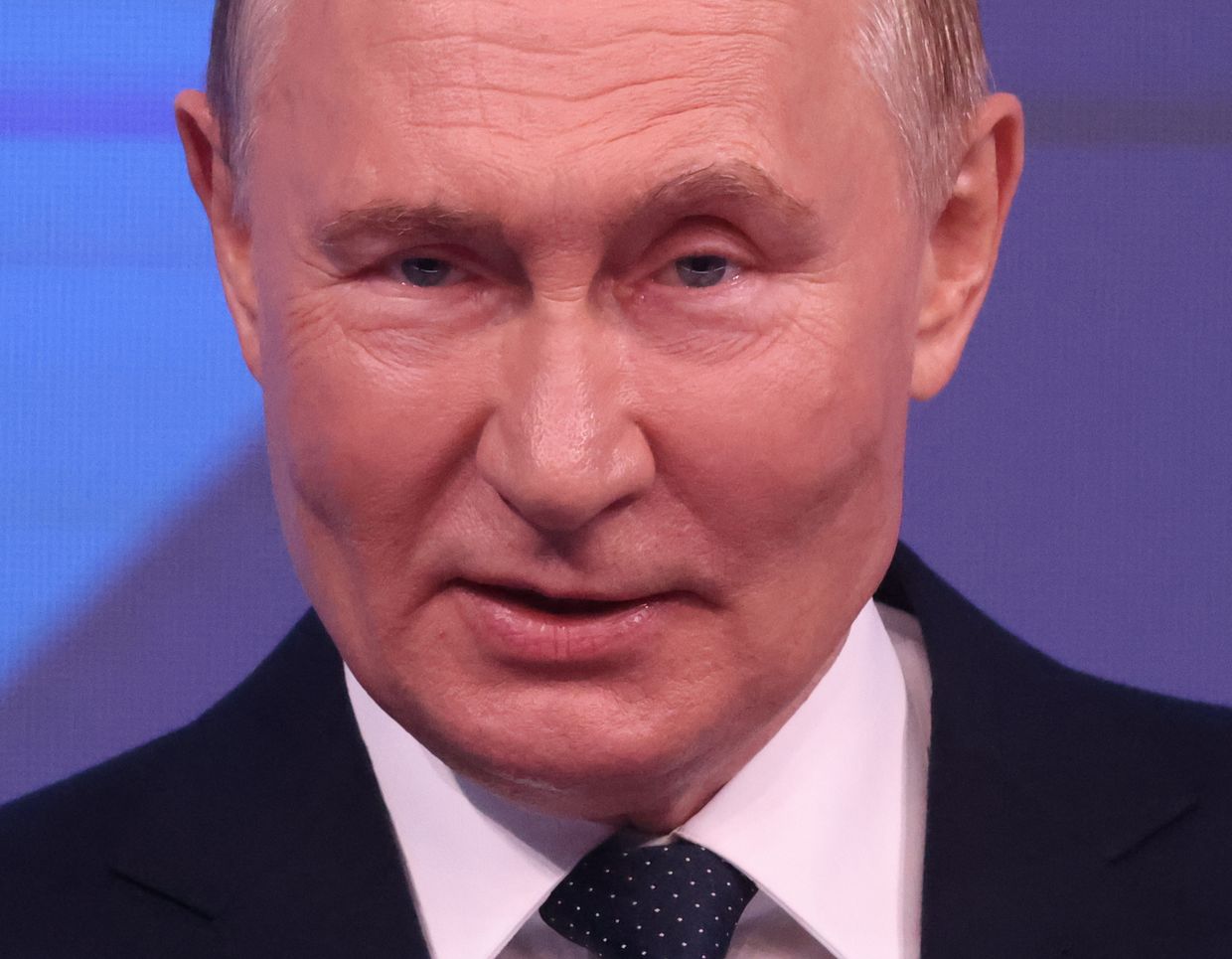The fate of Ukraine's defense against Russia and the future of U.S. support for Kyiv was the subject of passionate exchange on Sept. 10 in the first and possibly only debate between former President Donald Trump and Vice President Kamala Harris.
Trump refused to say that he wanted Ukraine to win the war and dodged a question as to whether a Ukrainian victory was in the United States' best interests.
"I think it's the U.S. best interest to get this war finished and just get it done, negotiate a deal," he said.
Trump repeated many of his standard talking points on Ukraine, saying that he knows both President Volodymyr Zelensky and Russian President Vladimir Putin well, that his "good" relationship with both leaders will result in the war being "settled" before he potentially enters office again, and that the 2021 U.S. withdrawal of troops from Afghanistan prompted Putin's full-scale invasion of Ukraine.
"I want to get this war settled," Trump said, adding that if he were president, Putin wouldn’t have lost thousands of troops in Ukraine.
"(Putin) would have been sitting in Moscow much happier than he is right now."
Harris, in response, accused Trump of giving up on Ukraine.
"The reason that Donald Trump says that this war would be over within 24 hours is because he would just give it up, and that's not who we are as Americans," she said.
The debate was held in the crucial swing state of Pennsylvania and may be the candidates' only meeting until election day in less than two months.
Ahead of the Sept. 10 debate, Trump had inched ahead of Harris, 48 percent to 47 percent, in the latest Times/Siena College poll. Less than one percent of the likely electorate in the poll said Russia's full-scale war in Ukraine is the single most important issue in deciding their vote, but the prolonged and fervent back-and-forth on the debate stage signaled the importance of the war in Washington.
The showdown came hours after Secretary of State Antony Blinken said that Russia escalated its war by accepting ballistic missiles from Iran.
During the debate, both candidates appealed to viewers' fears of potential Russian escalation, with Trump raising the specter of World War III and Harris warning that Putin's ambitions extend beyond Ukraine.
"(Putin has) nuclear weapons, nobody ever thinks about that," Trump said.
"And eventually, maybe he'll use them, and maybe he hasn't been that threatening, but he does have that."
Harris, who defended her diplomacy work with Zelensky in early 2022, said that respecting sovereignty and territorial integrity is one of the most important international rules and norms. She said military leaders around the world consider Trump a "disgrace," and that it would have been disastrous had Trump won the 2020 election.
"If Donald Trump were president, Putin would be sitting in Kyiv right now, and understand what that would mean, because Putin's agenda is not just about Ukraine," Harris said.
The vice president warned that Putin could set his sights on Poland next and suggested that Trump consider the interests of the Polish-American community as well as U.S. allies abroad.
Despite stoking fears of Russian escalation, neither candidate brought up Russia's alleged attempts to influence the U.S. election, nor did they outline clear plans for peace in Ukraine.
The vice president had the advantage of speaking to what the current administration has done for Ukraine over the last two and a half years of war. From air defenses and ammunition to Abrams tanks and javelin missiles, Ukraine stands independently and free, Harris said, because of American support.
Harris did not address how or if she would change the White House's current restrictions on Kyiv’s ability to strike inside Russia with American weapons, which was the subject of repeated letters to the Biden administration on Sept. 10.
Trump, too, failed to mention any policies on the use of long-range weapons. He repeated claims that he would end the war before his first day in office if elected, but in the last presidential debate — the June 27 debacle which was the beginning of the end of President Joe Biden’s re-election campaign – the former president rejected Putin's peace terms.
Just days before the Sept. 10 debate, Trump also said at a rally in Wisconsin that Russia is 19 steps ahead of the U.S.
Trump's apparent admiration for Putin and other autocratic leaders was a repeated point of contention in the debate, as was Harris' own relationship with the Russian president. Trump brought up Putin's supposed endorsement of Harris, while Harris accused Trump of being easily flattered and manipulated by dictators.
"Putin endorsed (Harris) last week," Trump said. "(He) said 'I hope she wins' and I think he meant it because what he's gotten away with is absolutely incredible, it wouldn't have happened with me.”
Harris refuted a false claim from Trump that she had met and personally negotiated with Putin, and her responses emphasized Trump's infatuation with strong men and dictators.
"It is well known (Trump) exchanged love letters with Kim Jung Un and it is absolutely well known that these dictators and autocrats are rooting for (Trump) to be president again because they're so clear they can manipulate you with flatary and favors," Harris said.
Speaking directly to her opponent from only six feet away, Harris told Trump that Putin "would eat you for lunch."
Harris did not mention Putin's alleged endorsement, but her performance in the debate won the vice president another round of support. Taylor Swift endorsed Harris following the exchange, as did former U.S. Ambassador to Russia Michael McFaul, who said the debate was a huge win for the vice president.













